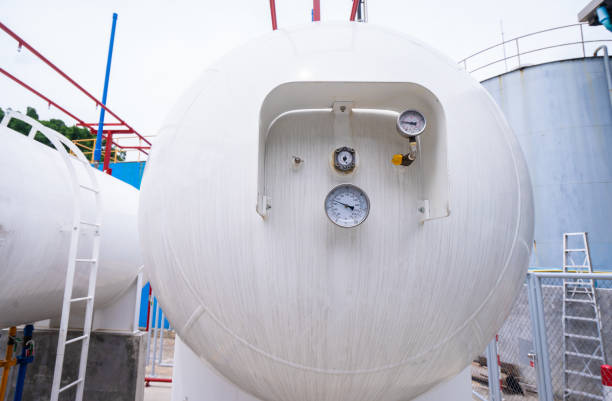Harnessing Propane-Powered Cogeneration for Heightened Energy Efficiency During Power Outages

Cogeneration involves the simultaneous production of electricity and useful heat from a single fuel source. Traditionally, electricity is generated at central power plants, while the heat produced during the generation process is often wasted. However, cogeneration plants capture and repurpose this waste heat for various applications, such as space heating, hot water production, or industrial processes. This integrated approach maximizes the energy value obtained from the fuel, significantly improving overall efficiency.
The Role of Propane in Cogeneration
Propane, a versatile and efficient fuel, offers numerous advantages, making it an ideal choice for cogeneration systems, particularly during power outages. As a readily available and easily transportable fuel, propane can be stored on-site, ensuring a reliable and continuous energy supply even when the electrical grid is compromised. The unique characteristics of propane enhance the performance and sustainability of cogeneration systems, making it an attractive option for diverse applications.
Benefits of Propane-Powered Cogeneration During Power Outages:
1. Enhanced Energy Efficiency: Cogeneration systems achieve exceptional levels of energy efficiency compared to conventional power generation methods. By simultaneously utilizing the waste heat produced during electricity generation, cogeneration systems using propane can attain overall efficiencies of up to 90%, resulting in significant fuel savings and reduced greenhouse gas emissions.
2. Reliable Power Supply: Power outages can cause disruptions and inconvenience to homes, businesses, and critical facilities. Propane-powered cogeneration systems provide a reliable backup power source during grid failures, ensuring uninterrupted electricity supply. This capability is especially crucial for essential services, hospitals, data centers, and remote facilities where a reliable power supply is vital.
3. Heat Recovery and Utilization: Cogeneration systems offer the unique advantage of capturing and utilizing waste heat that would otherwise be wasted in conventional power plants. Propane-powered cogeneration plants can redirect this heat for space heating, domestic hot water production, or industrial processes, significantly reducing the need for separate heating systems and improving overall energy efficiency.
4. Reduced Environmental Impact: Propane is recognized as a clean-burning fuel with lower carbon emissions compared to traditional fossil fuels. When used in cogeneration systems, propane significantly reduces greenhouse gas emissions and air pollutants. By embracing propane-powered cogeneration, communities can take key steps towards achieving their sustainability goals while ensuring energy security.
Applications of Propane-Powered Cogeneration:
1. Residential Buildings: Propane-powered cogeneration systems can be integrated into residential properties to provide both electricity and heat. These systems can supply power during outages and simultaneously meet the heating needs of homes, improving energy efficiency and reducing utility costs.
2. Commercial and Industrial Sectors: Cogeneration systems find extensive application in commercial and industrial settings where there is a high demand for electricity and heat. Propane-powered cogeneration plants can support critical operations during power outages, maintain production processes, and offer substantial energy savings through efficient heat utilization.
3. Remote Areas and Off-Grid Facilities: In remote areas or off-grid facilities, propane-powered cogeneration becomes a practical and reliable solution for meeting electricity and heat requirements. These systems can function independently, offering energy security and cost-effectiveness for communities that lack access to reliable grid infrastructure.














